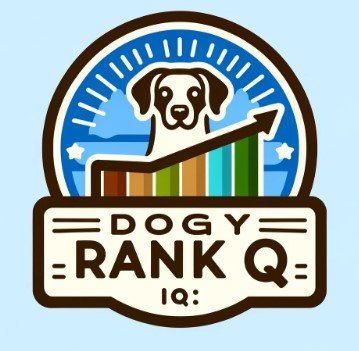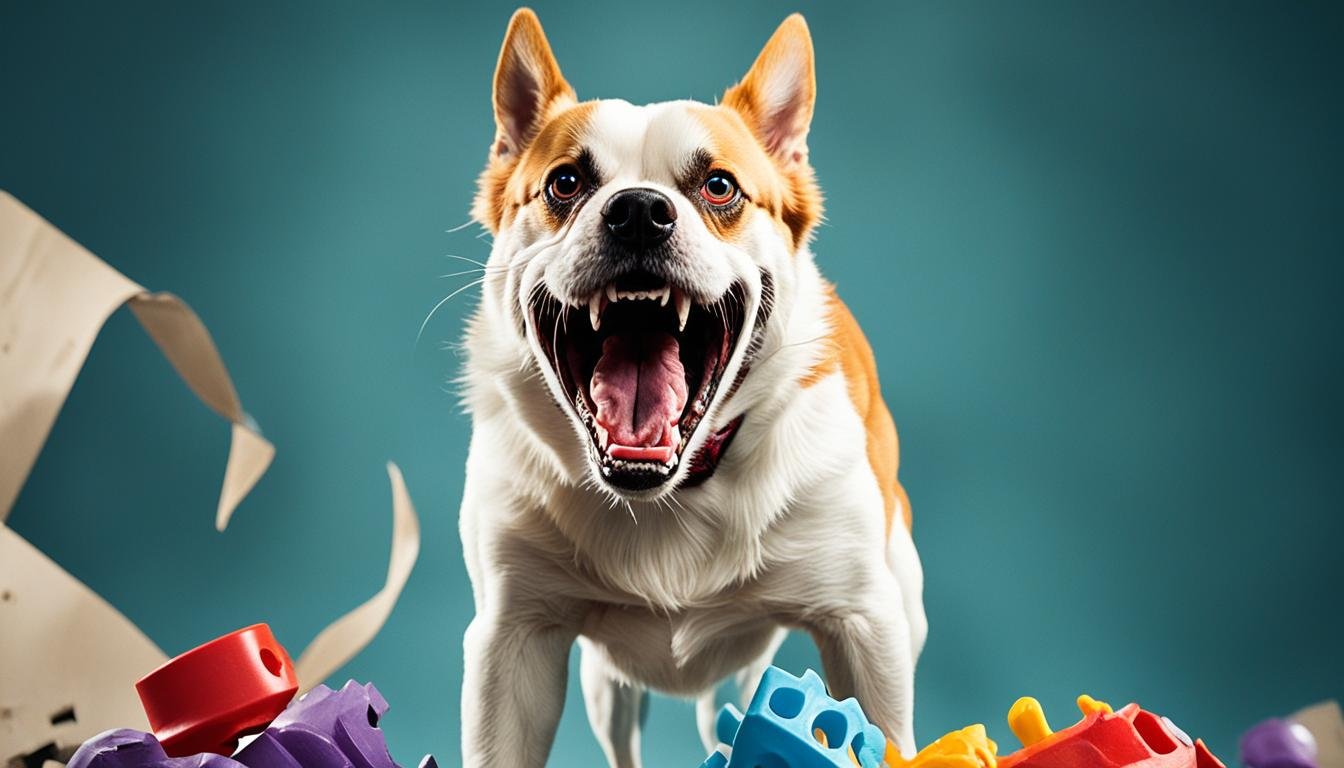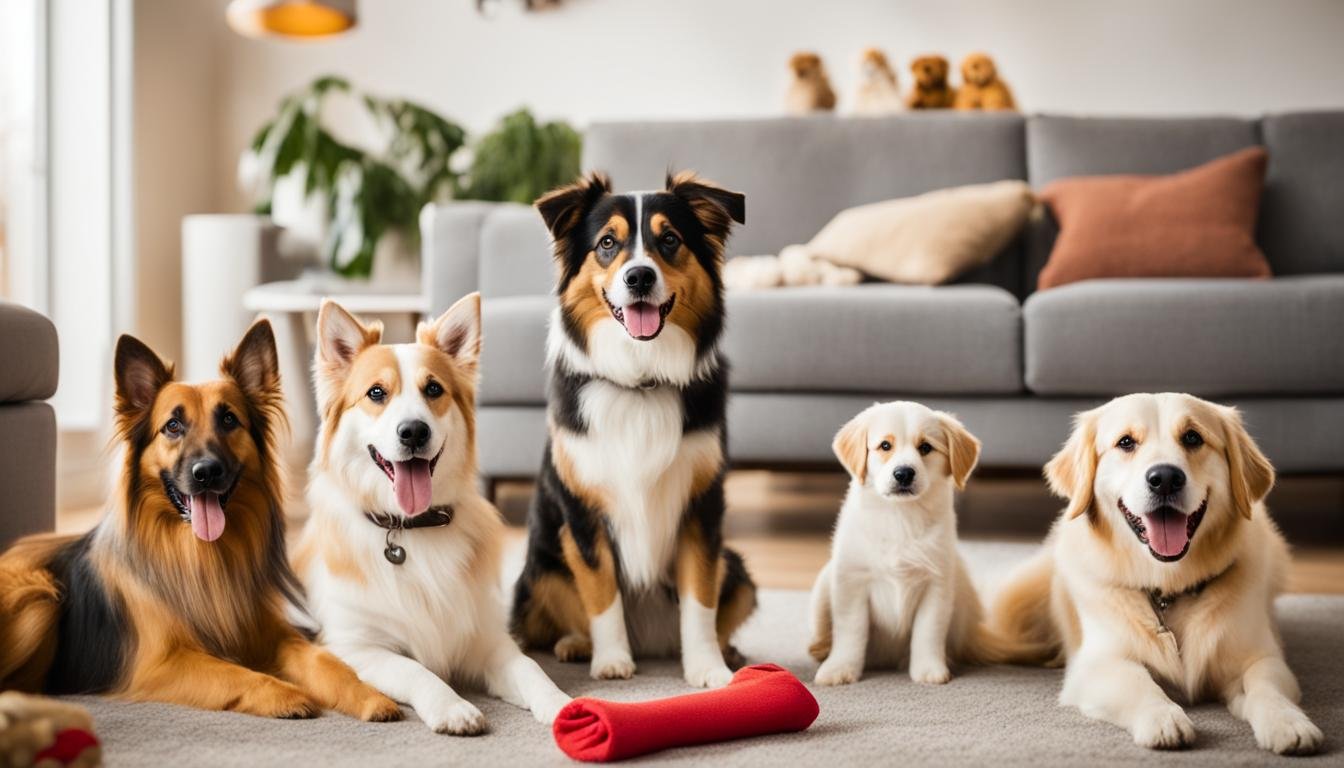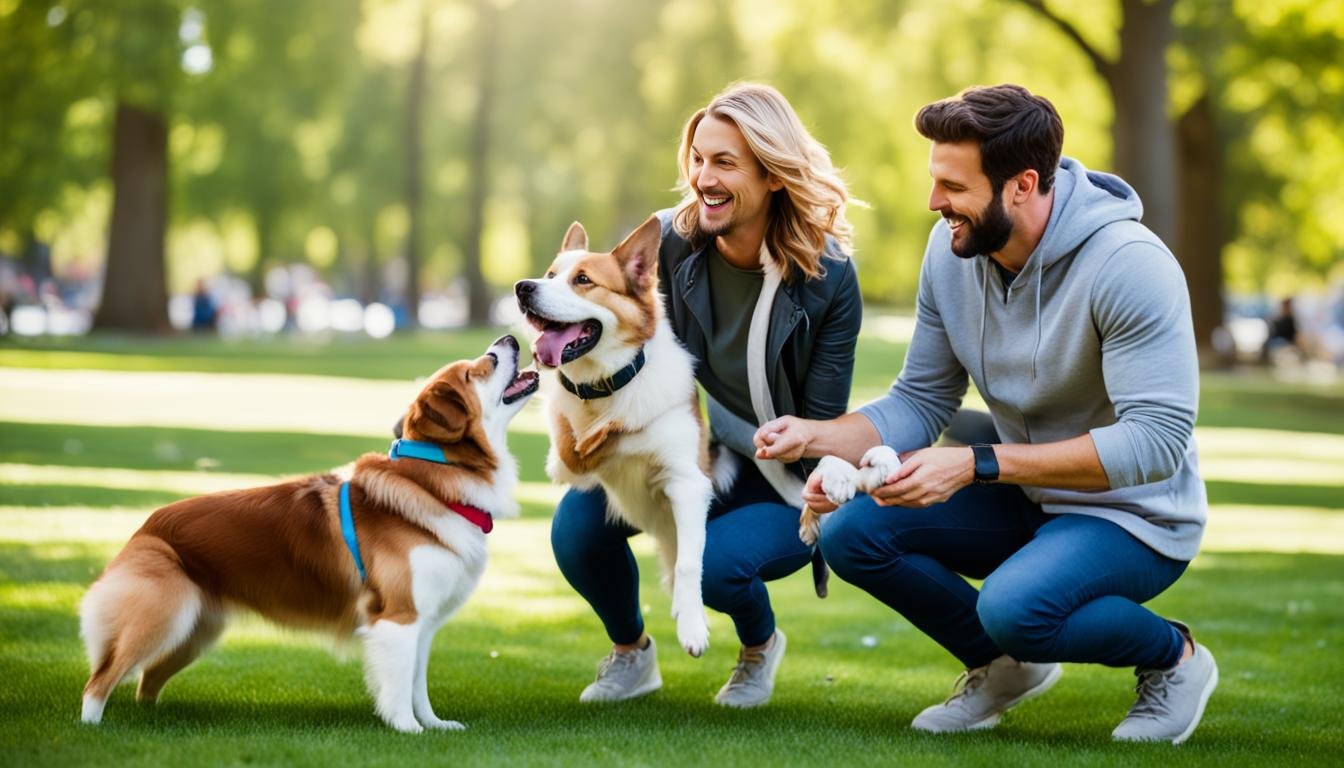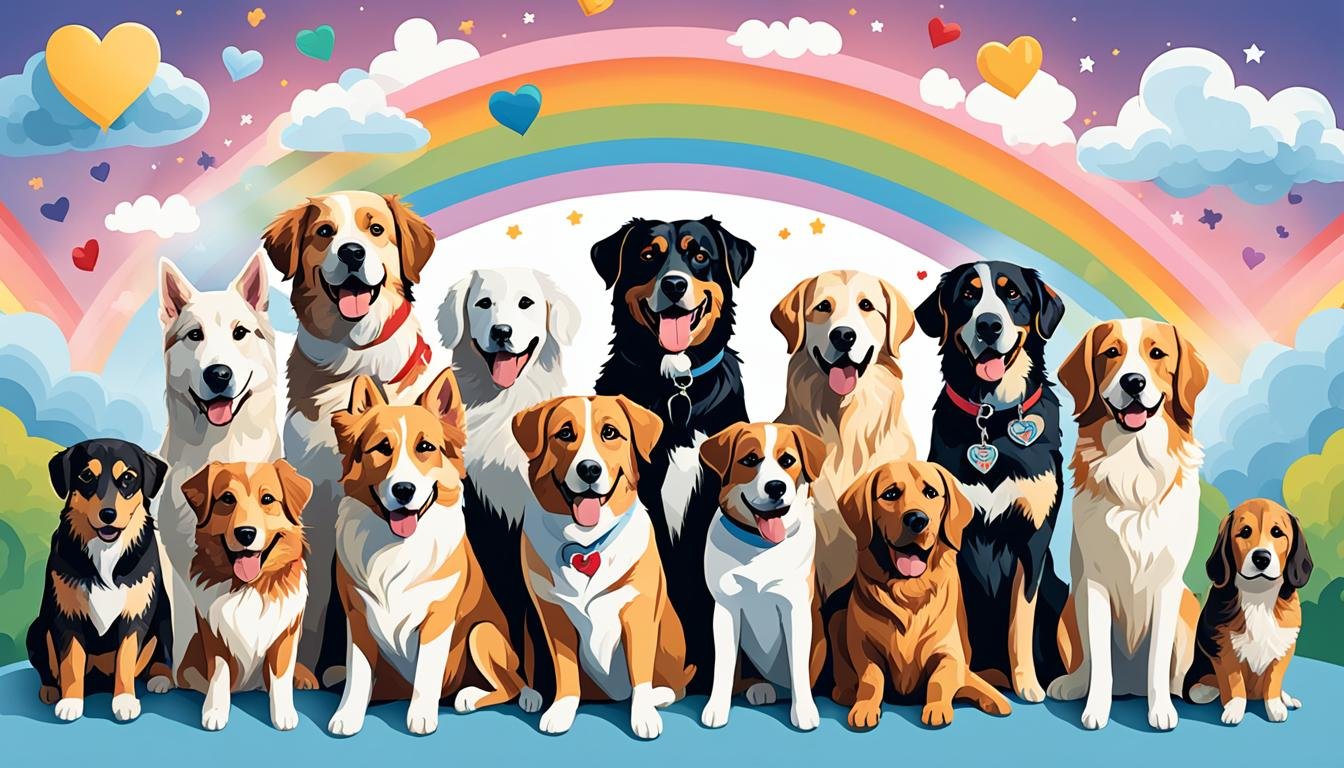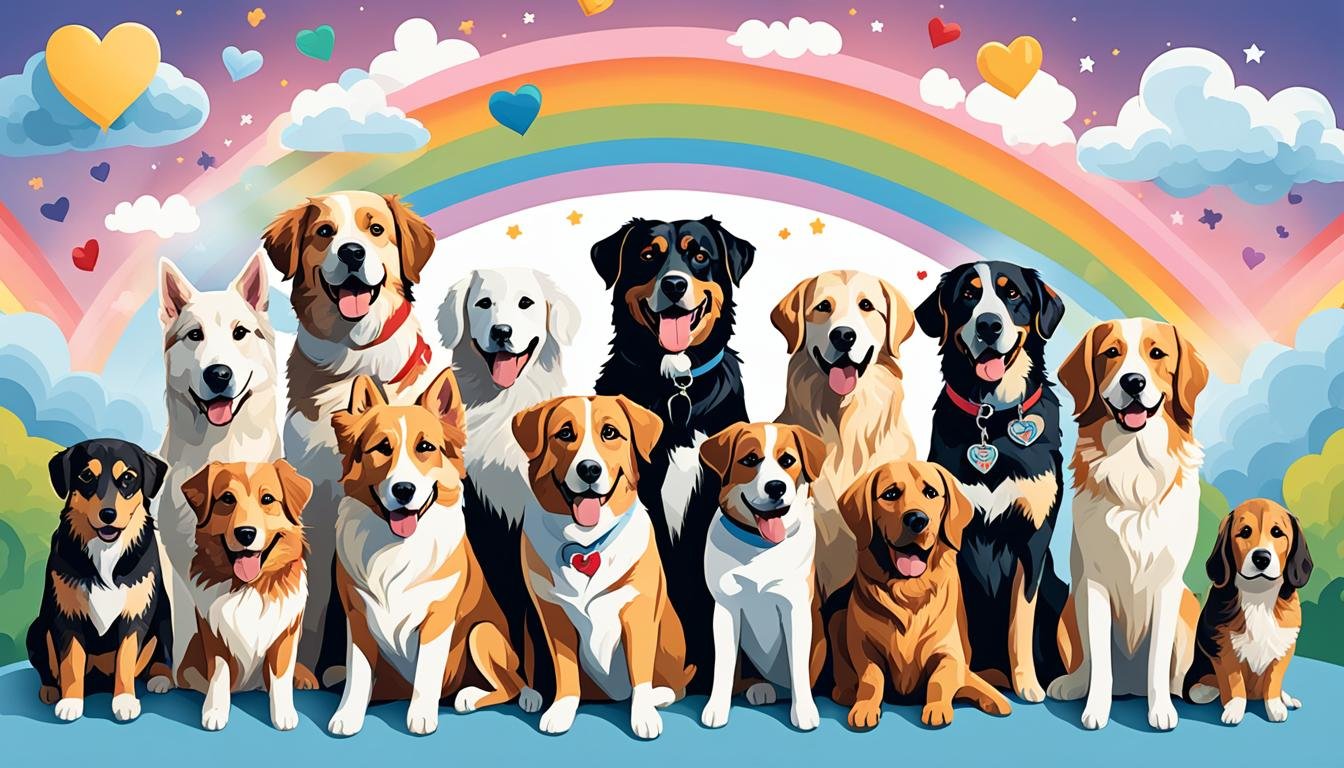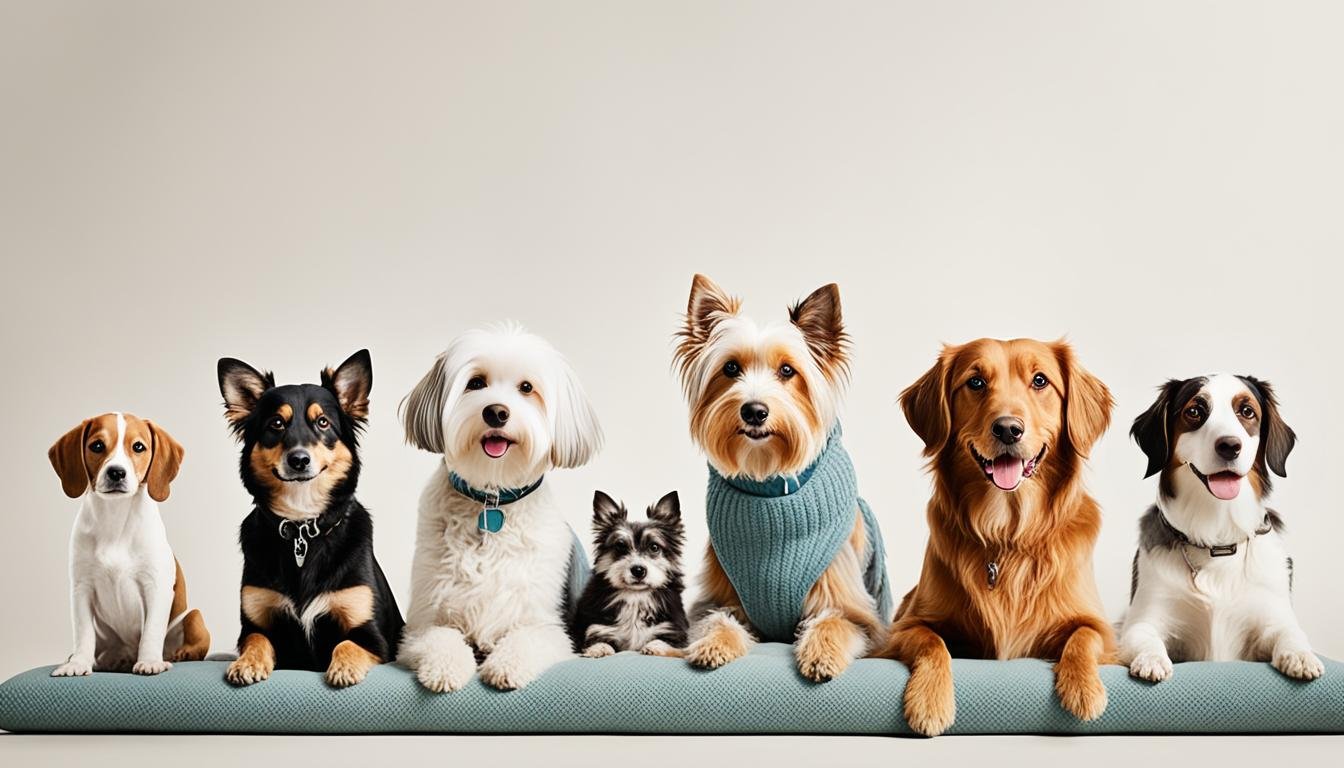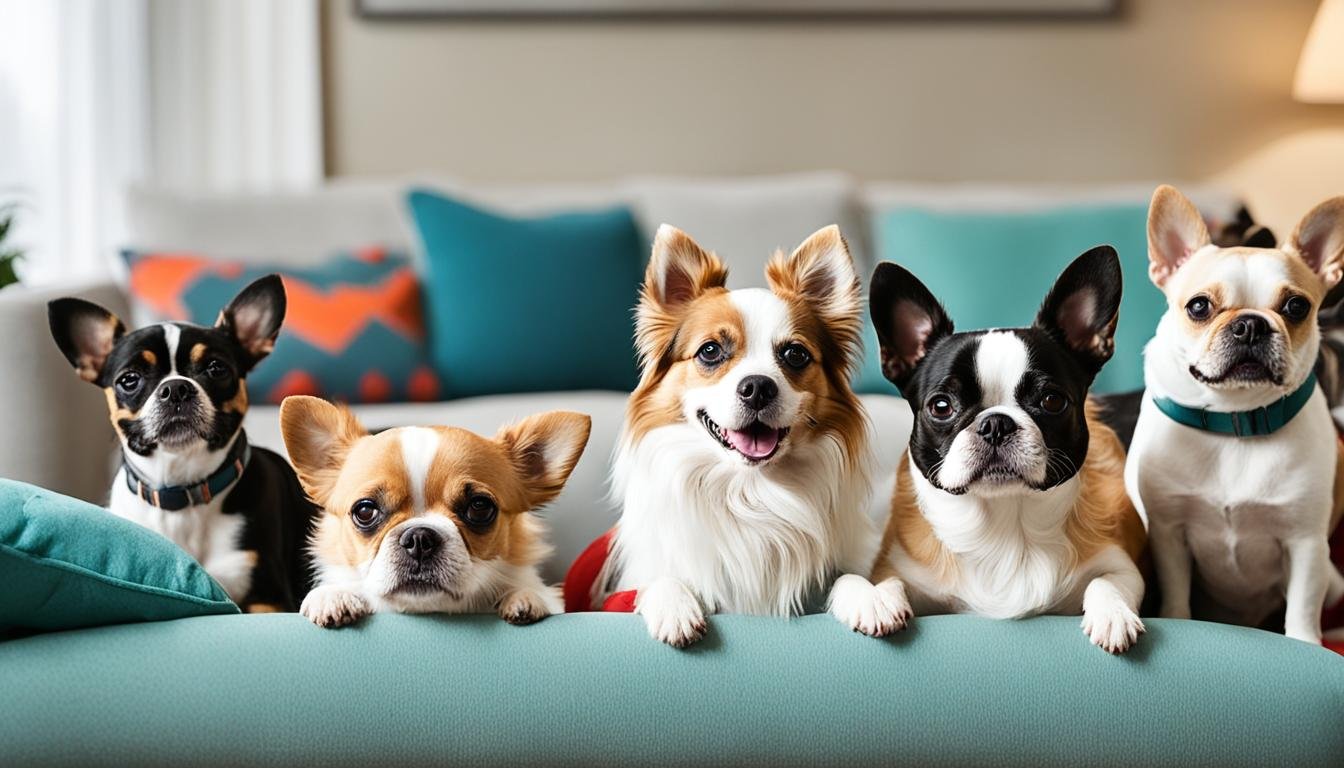You may be surprised to learn that the average cost of a claim for treating behavioral problems in dogs is around $275 according to Spot’s data1. This staggering statistic underscores the importance of understanding canine aggression and its underlying factors. Contrary to popular belief, there is no single “most aggressive dog breed.” In fact, the propensity for aggression varies widely across different breeds and is heavily influenced by a combination of biological and environmental factors.
As a responsible pet owner, it’s crucial to delve into the nuances of canine behavior to ensure the well-being of your furry companion and those around them. This article will explore the complex topic of dog aggression, debunking common misconceptions and providing insights into the most aggressive dog breeds, as well as strategies for preventing and managing this behavior.
Key Takeaways
- Aggression in dogs is not limited to a single breed, but rather a complex interplay of biological and environmental factors.
- Certain breeds, such as Pit Bull Terriers, Rottweilers, and German Shepherds, are often perceived as more aggressive, but this perception can be influenced by improper breeding, lack of socialization, and mistreatment.
- Individual dog temperament and behavior can vary significantly within a breed, and responsible ownership is essential in shaping a dog’s personality.
- Positive reinforcement training and early, continuous socialization are crucial in preventing and managing aggressive behavior in dogs.
- Misconceptions about breed-specific aggression should be addressed, as they can contribute to the stigmatization of certain dog breeds.
Defining Aggression in Dogs
Aggression in dogs refers to any behavior displayed with the intent to cause harm or intimidation, encompassing a range of actions from warnings to full-blown attacks2. This complex issue can manifest in various forms, including territorial aggression, protective aggression, possessive aggression, fear aggression, defensive aggression, and social aggression2. Understanding the root causes and dynamics of canine aggression is crucial for effective management and prevention.
Biological Factors Influencing Canine Aggression
Genetics play a significant role in a dog’s propensity for aggression, as certain breeds have a higher predisposition due to selective breeding practices2. Hormonal imbalances and neurological conditions can also contribute to heightened aggressive tendencies in some canines2. However, aggression is not solely determined by breed, and a combination of biological and environmental factors can influence a dog’s behavior.
Environmental Factors Influencing Canine Aggression
A dog’s environment and upbringing can significantly impact its behavior. Lack of socialization, inadequate training, abuse, neglect, and exposure to violence can all contribute to the development of aggressive traits2. Proper socialization and positive reinforcement training are crucial for preventing the emergence of aggressive tendencies2. Providing a safe and nurturing environment, along with consistent and positive training methods, is essential for addressing aggression in dogs.
“Aggression is the most common and most serious behavior problem in dogs, leading pet parents to seek professional help from behaviorists, trainers, and veterinarians.”2
By understanding the biological and environmental factors that can influence canine aggression, pet owners can take proactive steps to address and prevent this concerning behavior. Through responsible ownership, early intervention, and a commitment to positive training, the risk of aggressive incidents can be mitigated, ensuring the safety and well-being of both dogs and their human companions.
What is the most aggressive dog?
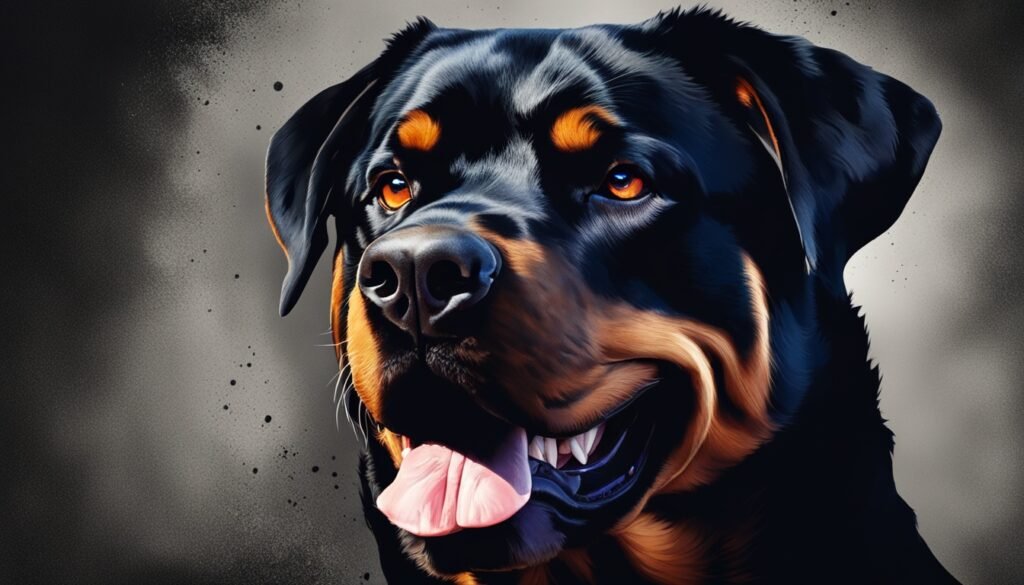
When it comes to the most aggressive dog breeds, certain breeds like the Pit Bull Terrier, Rottweiler, and German Shepherd often come to mind3. However, it’s important to recognize that aggression is not an inherent characteristic of these breeds4. Factors such as improper breeding, lack of socialization, or mistreatment by owners can contribute to aggressive behavior in any dog, regardless of breed.
While some breeds may have a higher propensity for aggression due to their genetic traits, such as strong prey drives, size, and territoriality4, it’s crucial to assess each dog as an individual rather than relying solely on breed stereotypes. With proper training, socialization, and responsible ownership, even breeds considered aggressive can be loving and loyal companions4.
For instance, Chihuahuas are known for their aggressive tendencies, despite their small size4, and Rottweilers can be loyal and protective when properly trained, but can also be dangerous if their natural aggression is not managed4. Similarly, Pitbull Terriers, which have a controversial reputation, require careful handling and training to channel their strength and bite power in a positive manner4.
Ultimately, the most aggressive dog is not defined by a single breed, but rather by a combination of factors, including genetics, environment, and the responsible ownership of the dog34. By understanding these factors and addressing them through proper training and socialization, dog owners can help ensure that even traditionally aggressive breeds can be safe and well-behaved companions.
“Aggression in dogs is a complex issue that cannot be simplified by breed alone. With the right care and training, even the most aggressive dog breeds can become loving, loyal, and well-behaved companions.”
Conclusion
Addressing the issue of dog aggression requires a comprehensive approach that considers both biological and environmental factors. Responsible ownership, which includes proper training, socialization, and providing a safe and loving environment, is the key to preventing and managing aggression in any breed5. Neglect and abuse by owners are identified as significant factors leading to aggressive behavior in dogs, emphasizing the impact of environment and treatment on dog temperament and behavior5.
By dispelling misconceptions about breed-specific aggression and focusing on the individual needs of each dog, we can promote a more compassionate and inclusive approach to dog ownership, ensuring the well-being of our furry companions5. Breed-specific legislation is noted to be ineffective in reducing dog attacks, with a call for detailed and responsible dog ownership practices instead of blanket regulations5.
With nearly 90 million dogs owned as pets in the United States6 and over 4.5 million people bitten by dogs annually6, it is crucial to address the root causes of dog aggression and foster a culture of responsible ownership. By prioritizing training, socialization, and a nurturing environment, we can build a stronger bond between humans and their canine companions, promoting the overall well-being of our four-legged friends.
FAQ
What is the most aggressive dog breed?
There is no single “most aggressive” dog breed, as aggression in dogs can be influenced by a combination of biological and environmental factors. However, some breeds, such as Pit Bull Terriers, Rottweilers, and German Shepherds, have a higher reported incidence of aggression due to selective breeding and other factors. It’s important to recognize that any dog, regardless of breed, can potentially display aggressive behaviors if not properly socialized, trained, and provided with a safe and nurturing environment.
What causes aggression in dogs?
Aggression in dogs can be caused by a variety of factors, including genetics, hormonal imbalances, neurological conditions, and environmental influences. Genetics can play a role in a dog’s predisposition to aggression, as some breeds have been selectively bred for traits that can contribute to aggressive tendencies. Hormonal imbalances and neurological disorders can also contribute to heightened aggression. Additionally, factors such as lack of socialization, inadequate training, abuse, neglect, and exposure to violence can all influence a dog’s development of aggressive behaviors.
How can I prevent and manage aggression in my dog?
Preventing and managing aggression in your dog requires a comprehensive approach that addresses both biological and environmental factors. Proper socialization, positive reinforcement training, and providing a safe and nurturing environment are essential. Socializing your dog from a young age, exposing them to a variety of people and situations in a controlled and positive manner, can help prevent the development of aggressive tendencies. Consistent, positive training methods that focus on building trust and confidence can also be effective in managing aggression. Additionally, addressing any underlying medical or neurological issues that may contribute to aggression is important.
Are some dog breeds more aggressive than others?
While certain breeds, such as Pit Bull Terriers, Rottweilers, and German Shepherds, have a reputation for being more aggressive, it’s important to recognize that aggression is not an inherent characteristic of these breeds. Factors like improper breeding, lack of socialization, or mistreatment by owners can contribute to aggressive behavior in any breed. With proper training and responsible ownership, even breeds considered aggressive can be loving and loyal companions. It’s crucial to assess each dog as an individual rather than making assumptions based on breed stereotypes.
How can I be a responsible dog owner to prevent aggression?
Being a responsible dog owner is key to preventing and managing aggression in your furry companion. This includes providing proper socialization, consistent and positive training, a safe and nurturing environment, and addressing any underlying medical or behavioral issues. Seeking the guidance of professional trainers or animal behaviorists can also be beneficial in developing an effective strategy for addressing aggression. By prioritizing the well-being and individual needs of your dog, you can promote a more compassionate and inclusive approach to dog ownership, ensuring the safety and happiness of both you and your pet.
